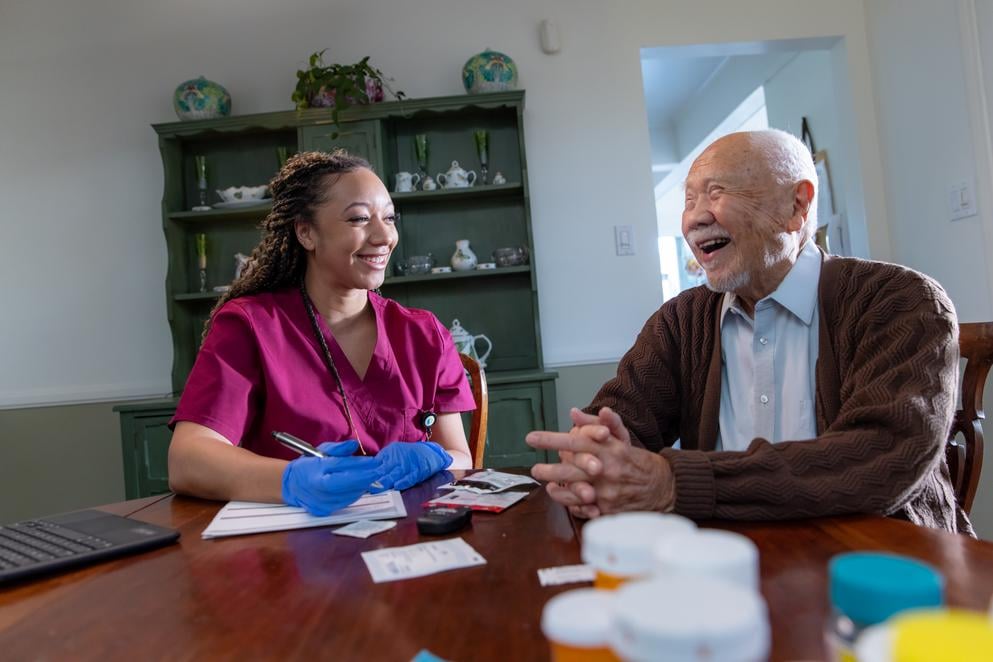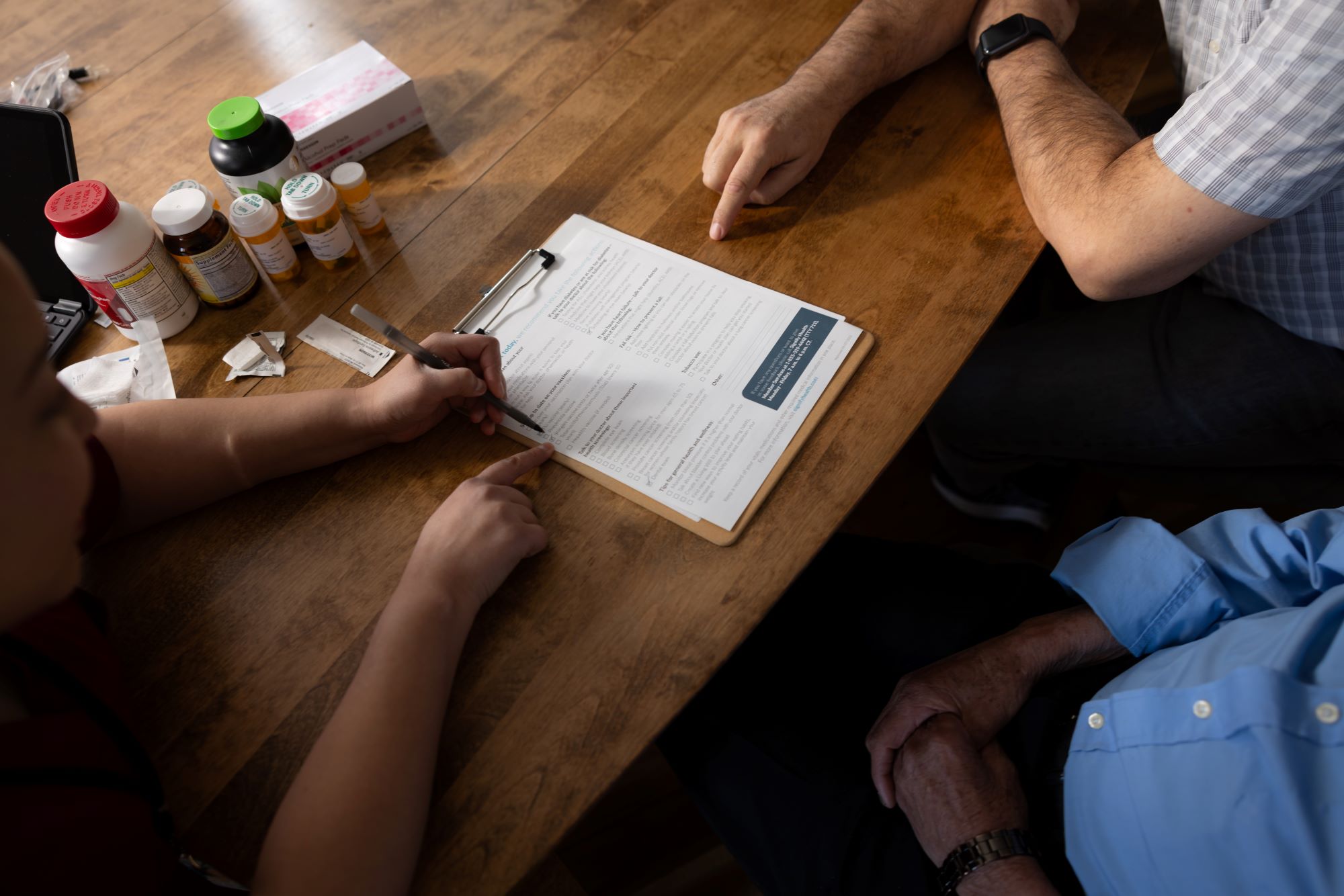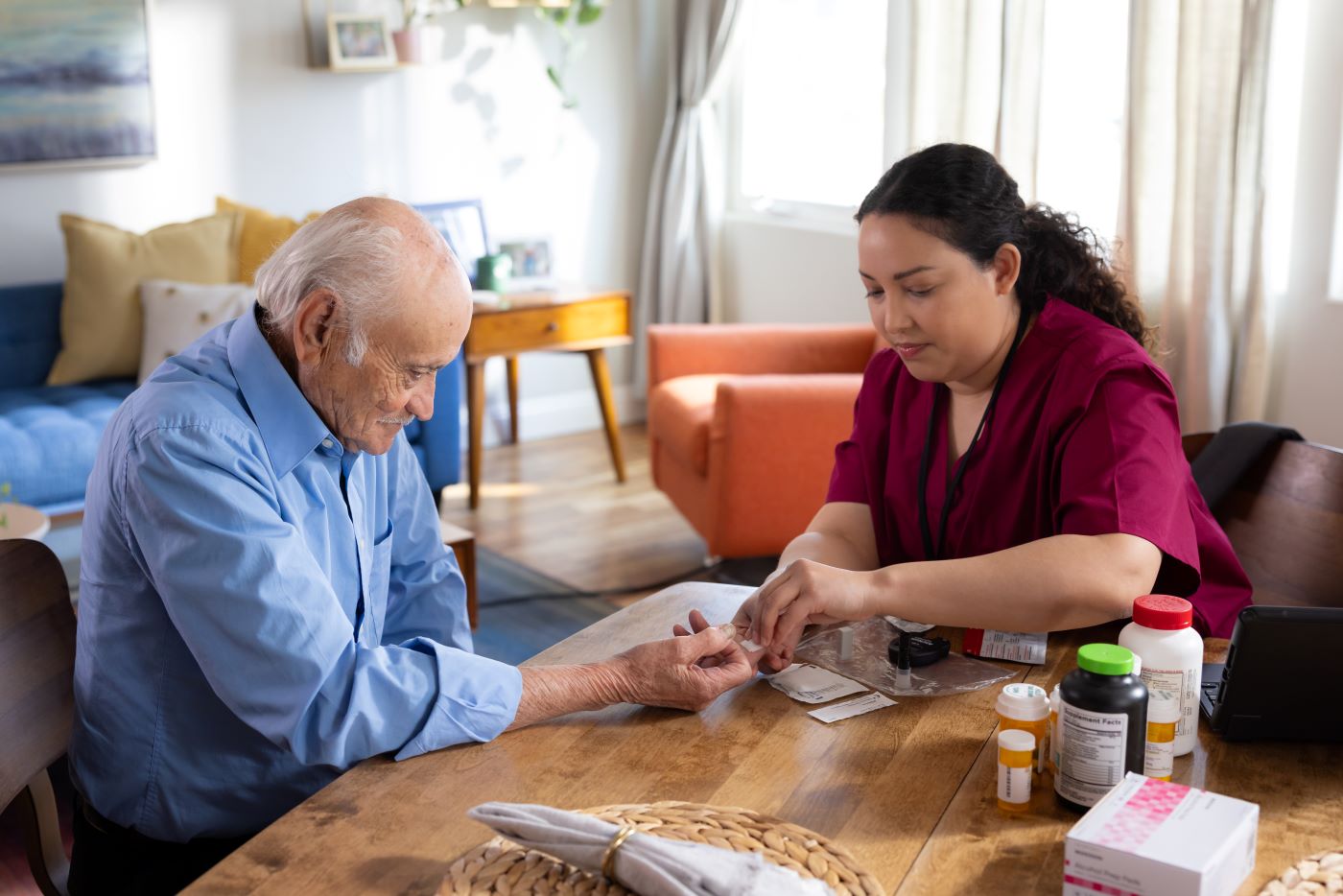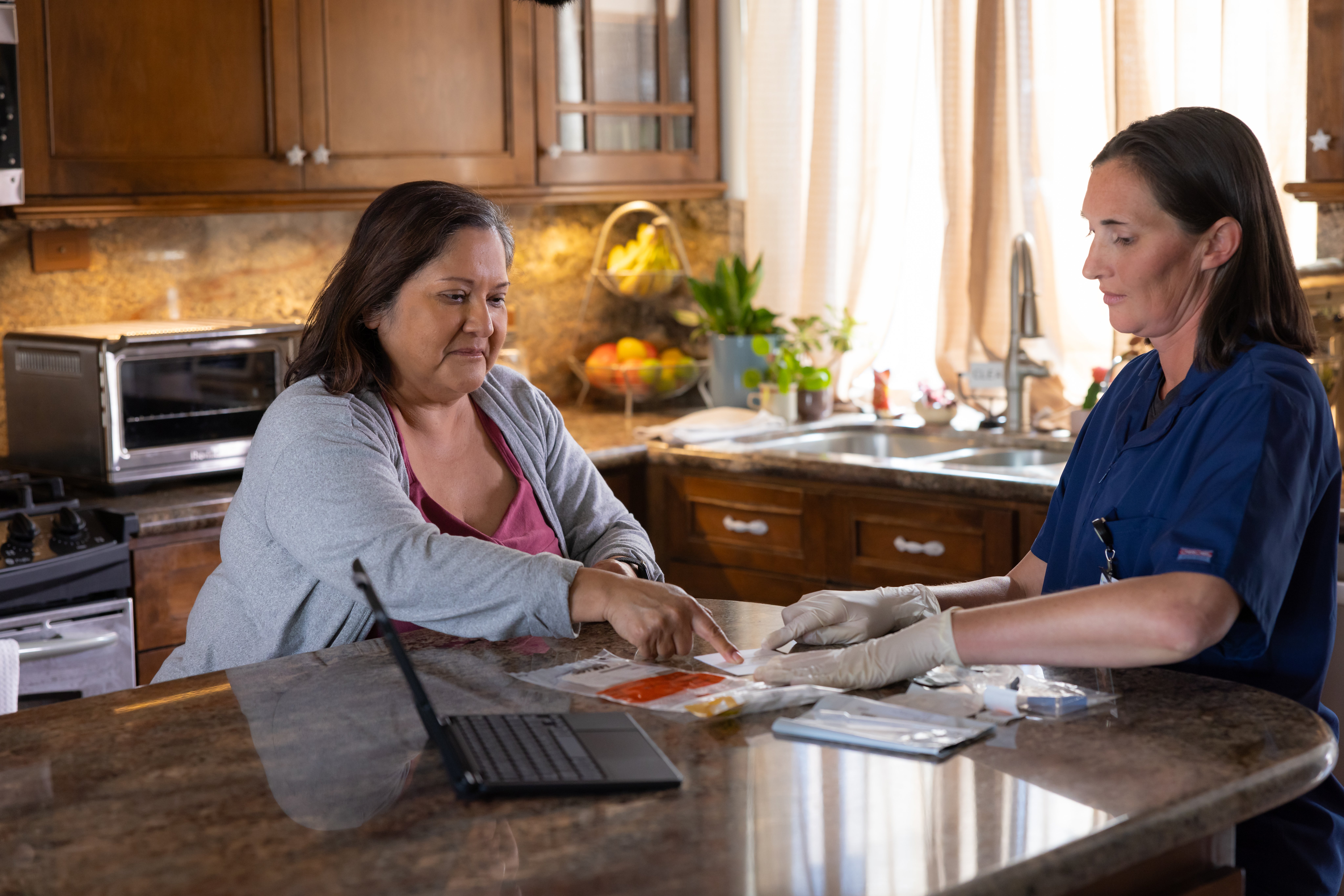4 min read
Talking with Health Plan Members: How Enhanced Member Experience Can Lead to Improved Primary Care Engagement
By Signify Health Team on 4/18/24 10:00 AM
In our recent white paper, ‘The Correlation Between Enhanced Member Experience and Improved Primary Care Engagement,’ we address peer-reviewed studies that demonstrated that Medicare beneficiaries who see a primary care provider (PCP) regularly have fewer hospitalizations and lower health care costs. Yet, certain factors make it challenging for some individuals, particularly older Americans, to see a PCP regularly.
Topics: In-Home Health Health Plans Diagnostic and Preventative Services
3 min read
Close to Home: Meet Lisa Anger, Signify Health Nurse Practitioner
By Signify Health Team on 4/16/24 9:00 AM
At Signify Health, our mission is to build trusted relationships to make people healthier. Our national network of more than 12,000 clinicians works to help people gain a more comprehensive view of their health by conducting In-Home Health Evaluations (IHEs). During an IHE, clinicians identify chronic conditions, close gaps in care, and address social determinants of health, making it possible for health plan members to get connected to the right care for their unique needs.
We’re proud to showcase the clinicians helping us build a more connected, effective care
experience for all – and their personal stories that make this important work feel #ClosetoHome.
This is Lisa’s story.
Lisa Anger, a nurse practitioner with Signify Health, has learned to trust her instincts, especially when someone’s health is on the line. Fortunately for one health plan member on Anger’s schedule, her instinct saved a life.
Recently, while completing the In-home Health Evaluation, Anger noted a member had a very low pulse rate. Lisa advised him to seek care immediately to rule out any underlying issues.
The member immediately sought care at a local hospital and needed heart surgery. “I am very thankful for the visit – it saved my life,” the member later told a Signify Health team representative during a phone call to thank Anger for her quick action.
Putting People First
Fortunately, Anger doesn’t often need to offer life-saving clinical guidance during every visit, but she strives to put people first daily regardless of their needs. Whether it’s high blood pressure or a medication issue, she looks for ways to help every health plan member stay healthy.
“Because we have time with members in the home, we’re in a position to notice things others may miss. We can then refer the member back to their primary care provider for the follow-up they need.”
Anger has been with Signify Health since 2022. After six years as a nurse practitioner in the acute care setting, she wanted to try something new.
“Mostly, health care is very quick now. You may only have a few minutes with your doctor, which may not leave enough time to ask questions. With Signify Health, I have the time to go in-depth with health plan members. This is what I want from my nursing career,” she said.
Healthy Hearts
In the spirit of ‘Move More Month,’ observed every year in April, Anger has practical tips to share, many especially important for those at higher risk of heart attacks and strokes. Here are a few suggestions you can also keep in mind:
Topics: Careers Clinician Stories Individuals and Families In-Home Health General
1 min read
National Kidney Month: Get Tested At Home
By Signify Health Team on 3/28/24 10:02 AM
March is National Kidney Month. In August 2023, as part of In-Home Health Evaluations (IHEs), Signify Health announced the launch of a comprehensive kidney health evaluation to support the early detection, diagnosis, and management of kidney disease for eligible health plan members.
Topics: Individuals and Families In-Home Health
2 min read
Close to Home: Meet Elizabeth Dugan, MD, Signify Health Physician
By Signify Health Team on 3/26/24 10:00 AM
At Signify Health, our mission is to build trusted relationships to make people healthier. Our national network of more than 12,000 clinicians works to help people gain a more comprehensive view of their health by conducting In-Home Health Evaluations (IHEs). During an IHE, clinicians identify chronic conditions, close gaps in care, and address social determinants of health, making it possible for health plan members to get connected to the right care for their unique needs.
Topics: Careers Clinician Stories In-Home Health General
3 min read
How to Talk with Your Doctor and Why It Matters
By Signify Health Team on 3/22/24 10:00 AM
One of the most important parts of managing your health is having open and productive conversations with your primary care provider.






